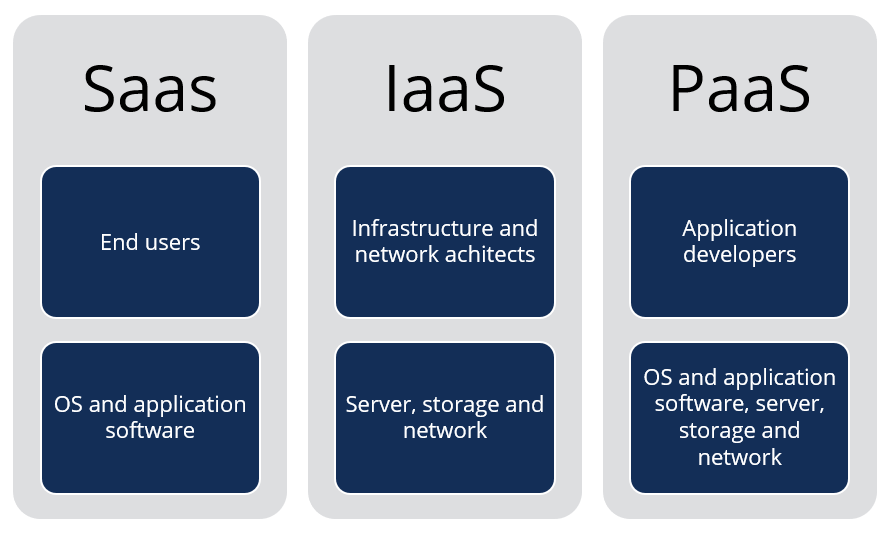LinkDaddy Cloud Services: Cutting-Edge Solutions for Your Company Demands
Wiki Article
Achieve Seamless Scalability With Cloud Services
In the ever-evolving landscape of cloud solutions, achieving smooth scalability stands as a cornerstone for modern businesses seeking to remain adaptable and affordable. The ability to effortlessly broaden or acquire sources in response to altering demands is a crucial benefit in today's busy digital atmosphere. By mastering the art of scalable cloud remedies, companies can not just enhance performance and simplify operations yet also pave the method for future development and innovation. The quest for smooth scalability with cloud solutions reveals a globe of opportunities for those ready to embrace the transformative power of dynamic resource monitoring.Advantages of Cloud Scalability
Cloud scalability uses organizations the adaptability to dynamically readjust sources based on demand, making sure optimum performance and expense efficiency. One key benefit is the ability to scale resources up or down swiftly in action to rising and fall workloads. This agility enables companies to meet transforming customer requirements without over-provisioning sources, eventually causing cost savings. Scalability also boosts efficiency by ensuring that systems can handle boosted traffic or work without experiencing downtime or slowdowns. By efficiently allocating resources, organizations can maintain high levels of efficiency throughout peak times without unneeded costs during quieter periods. Additionally, cloud scalability advertises technology and testing by enabling services to easily check originalities and scale them as required. This versatility motivates a culture of continuous improvement and adjustment, enabling organizations to stay affordable in a swiftly developing market landscape. Ultimately, the advantages of cloud scalability extend past price financial savings to include improved performance, dexterity, and innovation.Trick Functions for Scaling
Effective scaling in cloud solutions depends on key features that enable companies to adjust sources dynamically based on demand. One more crucial feature is scalability, enabling systems to deal with boosted work by including resources perfectly. In general, these crucial functions collectively equip companies to attain smooth scalability in cloud solutions.Applying Auto-Scaling Strategies
To effectively maximize resource allocation and adjust to differing work, companies should strategically execute auto-scaling techniques in their cloud services infrastructure. Auto-scaling permits systems to automatically adjust the variety of calculate sources based upon real-time demand. There are numerous auto-scaling strategies that organizations can use, such as anticipating scaling, which utilizes historic information to anticipate future source needs, and responsive scaling, which reacts to existing workload modifications.
Ideal Practices for Scalability
For companies aiming to improve their scalability in cloud solutions, applying ideal practices is important for optimal performance and source monitoring. One secret ideal method is designing applications with a microservices design. This go to my site approach breaks down applications into smaller, independent services that can be deployed, updated, and scaled independently, permitting greater versatility and scalability.One more crucial method is making use of containerization innovation, such as Docker or Kubernetes. Containers allow the packaging of applications and their reliances into isolated systems, making it much easier to scale components Related Site separately and release them constantly throughout various atmospheres.
Additionally, executing automated implementation and infrastructure as code (IaC) can improve scalability efforts (linkdaddy cloud services). Automation tools like Terraform or Ansible aid in provisioning and managing sources effectively, decreasing manual errors and making it possible for quick scalability
In addition, keeping track of performance metrics, setting up informs, and carrying out regular ability planning are crucial practices to guarantee positive scalability management. By sticking to these best methods, companies can achieve seamless scalability in their cloud services while enhancing efficiency and resource utilization.
Monitoring Efficiency Metrics
When assessing the performance of cloud solutions scalability, carefully keeping track of performance metrics is vital for guaranteeing optimal functionality and source allotment. By constantly tracking crucial efficiency indicators (KPIs) such as reaction times, resource, latency, and throughput usage, organizations can get valuable understandings right into the wellness and efficiency of their cloud framework. Keeping an eye on performance metrics permits for the early discovery of potential bottlenecks or issues that could affect scalability, making it possible for positive procedures to be required to address them prior to they intensify.

Verdict
To conclude, attaining seamless scalability with cloud services is important for companies to enhance performance, improve innovation, and keep high performance levels during peak times. By leveraging the advantages of cloud scalability, implementing auto-scaling strategies, using vital features such as elasticity and automation, and complying with finest practices like application style and efficiency surveillance, businesses can successfully scale their systems while maximizing resource usage and performance.The pursuit for seamless home scalability with cloud services unveils a globe of opportunities for those prepared to welcome the transformative power of dynamic source management.
Cloud scalability provides organizations the adaptability to dynamically readjust resources based on demand, guaranteeing optimal efficiency and price effectiveness. An additional key attribute is scalability, allowing systems to manage enhanced work by including resources flawlessly.For organizations intending to improve their scalability in cloud solutions, executing best practices is essential for ideal performance and source monitoring.When analyzing the efficiency of cloud solutions scalability, closely monitoring efficiency metrics is essential for ensuring ideal performance and resource allowance.
Report this wiki page